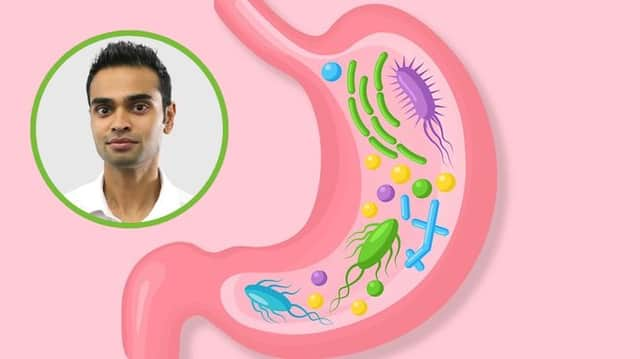Gut health: GP explains five signs of an unhealthy gut - and the diet changes that fix it


Looking after your gut is the secret to a number of health hacks.
A healthy gut can boost your immune system, and even create vitamins like B12 off it's own back. But many of us will have an unbalanced or unhealthy gut, which could mean our physical and mental health is affected.
Advertisement
Hide AdAdvertisement
Hide AdNow, a top GP has shown us how to tell if our gut is unhealthy - and the things we can do to fix it.
Dr Sameer Sanghvi, clinical technology lead at LloydsPharmacy Online Doctor, said: "The key to good gut health is ensuring the variety of bacteria present is carefully balanced. There are a range of diet and lifestyle factors that can negatively affect the balance of bacteria in your digestive system. Stress levels, lack of sleep, a highly processed diet and taking antibiotics can all have an impact.
"Experiencing frequent discomfort, gas, bloating, constipation, diarrhea, and heartburn could be a sign that your gut is having a hard time digesting and eliminating waste. Your body may be struggling to absorb nutrients, store fat and regulate blood sugar therefore resulting in unexpected changes in weight.
"An unhealthy gut can result in insomnia or poor sleep, resulting in feeling fatigued. Some skin conditions such as acne and eczema can be a result of gut issues - and food intolerances can be due to poor quality of bacteria in the gut."
Advertisement
Hide AdAdvertisement
Hide AdWithin the gut, there are trillions of tiny microbes that make up a complex ecosystem known as the microbiome. Dr Sanghvi explained that if you have an imbalance of gut bacteria you may be more susceptible to sickness.
But the GP had plenty of top tips on how to turn your gut around - and most of it comes from very simple diet changes.
Dr Sanghvi said: "Diet has a big role to play when it comes to improving gut health. The best thing to do is eat a variety of plant-based foods. Try to 'eat the rainbow', ensuring your diet includes lots of fruit and vegetables, whole grains, nuts and seeds, and legumes like beans and lentils.
"It’s also important to make sure your diet includes prebiotics. These are foods that contain a specific type of fibre that feeds good bacteria in the gut. Examples of foods rich in prebiotics include bananas, pomegranate, oats, rye crackers, pistachios and garlic.
"Similarly, you want to aim to include probiotics in your diet too. These are foods like natural yoghurt, kombucha and pickles which include live bacteria."
Comment Guidelines
National World encourages reader discussion on our stories. User feedback, insights and back-and-forth exchanges add a rich layer of context to reporting. Please review our Community Guidelines before commenting.
